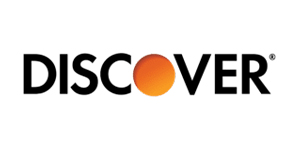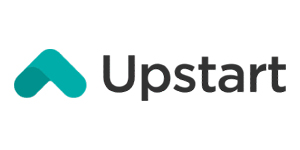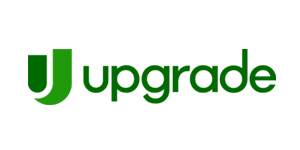Your credit score is one of the main metrics lenders use to determine if you qualify for a personal loan and your terms. If you have fair credit — meaning you have a FICO score between 580 and 669 — it can be more difficult to get an affordable personal loan than if you have good or excellent credit.
However, we at the MarketWatch Guides team have curated and endorsed a selection of top-tier lenders. It represents the best options for individuals within this credit bracket.

Average Personal Loan Interest Rates By Credit Score
Our table lays out the average personal loan interest rates based on data we obtained from Credible. Your unique rate will be determined by the lender, and your credit score is only one of the factors taken into consideration for loan approval.
The Best Personal Loans for Fair Credit
The best personal loans for fair credit come from lenders with easy qualifying requirements and affordable interest rates. We've combed through lender data to find some top choices for borrowers with fair credit.
*APR accurate as of June 27, 2024
>> Related: Learn more about the best personal loans
When Should I Consider a Fair Credit Personal Loan?
Personal loans can be used for any purpose, making them a flexible borrowing option. Many people find taking out a personal loan makes sense when they need to do one or more of the following:
- Consolidate debt, usually at a lower rate
- Cover the cost of home improvements
- Cover emergency costs
- Finance a large purchase
Personal loans generally come with fixed rates and payments and a set payoff schedule, which could make them a good fit for those who value this type of predictability.
If you have fair credit, you’ll generally have options to choose from when it comes to a personal loan – but you’ll likely pay higher interest rates and face steeper fees than someone with good to excellent credit. Your credit score is determined based on a formula meant to gauge your likelihood of paying back a loan, including your history of making on-time payments and how much debt you currently have.
Consider speaking with a financial adviser before making the decision to borrow. This is especially important for borrowers with poor or fair credit who may be offered less favorable rates and terms than those with higher credit scores.
How a Personal Loan Can Affect Your Credit Score
A personal loan can decrease your credit score at first. When you apply for the loan, your score will take a small, temporary dip due to your lender’s credit inquiry. Taking on new debt can also temporarily cause your score to fall.
However, your credit score should increase as you pay back the loan with on-time payments and decrease your total amount of outstanding credit, two key factors in calculating your score.
Debt consolidation loans help improve credit scores the most, likely because they’re primarily used to consolidate and pay off debt. In a new MarketWatch Guides survey, respondents reported improving their credit scores by an average of 43 points after consolidating debt.
What Does It Mean To Have Fair Credit?
Lenders rely on two main credit scores, FICO and VantageScore, to gauge how risky a potential borrower is expected to be. Both use a 300 to 850 scale to rate your creditworthiness. Since FICO scores are more commonly used, we will use their definitions.
Fair credit is defined as a FICO score that falls within the range of 580 and 669 points. Since the average credit score in the U.S. is 718 and falls in the “Good” range, a fair credit score is slightly below average. Creditors calculate the risk of delinquency (not keeping up with payments and defaulting on the loan) for those with fair credit is 28%, defined as a medium-high risk, according to FICO.
A fair credit score may make it more difficult for you to be approved for some loans or could mean you’ll pay a higher interest rate than a person with a higher credit score. “If you have the time, work on improving your credit score before applying for a personal loan,” National Business Capital CEO Joseph Camberato told MarketWatch Guides. “Try to pay down high balances so that you're within a 30% credit utilization ratio. Avoid opening too many new accounts before applying, and check to see if your provider offers any credit improvement programs that could make your loan application more appealing to lenders."
Alternatives to Fair Credit Loans
There are alternatives to personal loans that may work better for you, given your unique financial situation. Here are several recommendations.
Home Equity Loan
A home equity loan is a fixed-rate secured loan you take out against the equity you have built up in your home. You typically have to be a homeowner with usually at least 20% equity in your home to qualify.
The current average interest rate for these loans is 8.93%, which beats the current 11.87% average APR for personal loans. However, home equity loans can be hard to qualify for, with many lenders wanting a credit score in the mid-600s and a DTI ratio of 43% or less.
Home equity loans, at 10 to 30 years, usually have a longer repayment term than personal loans. While your monthly balance will be lower, you’ll pay more in interest over the life of your loan.
>> Related: Learn more about the best home equity lenders
Secured Personal Loan
If you can’t qualify for a personal loan or aren’t getting the interest rate you want, you may consider a secured personal loan. A secured personal loan allows you to put up collateral — a vehicle, savings or even the fixtures in your house — as equity to back the loan, usually meaning these loans are easier to qualify for and have better interest rates than unsecured personal loans.
The downside is if you can’t repay the loan as promised, your collateral could be repossessed. Here are our recommendations for the top secured personal loan providers.
Salary Advance
If you don’t need to borrow a huge amount of money, you may consider a salary advance. You can reach out to your employer to see if they’ll advance you a percentage of your funds from your next paycheck.
If you can’t get an advance directly from your employer, some credit unions offer a Salary Advance Loan, with APRs similar to credit cards. There are also a number of mobile apps that allow you to borrow a percentage of your upcoming paycheck.
The downside of a salary advance or salary advance loan is if you tap into a future paycheck, you’ll have less money to pay your bills in the future, which may get you locked into a cycle that’s hard to break out of.
| Type of Loan | Personal Loan | Home Equity Loan | Secured Personal Loan | Salary Advance |
|---|---|---|---|---|
| APRs | 12.49% (Federal Reserve average) | 8.50% to 9.50% APY | 2.25% to 35.99% APY | 0% to 18% APY |
| Ability to Qualify | Minimum credit score: 300-670, <45-50% DTI, Some require annual income of $25,000+ | Minimum credit score: 620-700, <43% DTI, homeowner with at least 20% equity | Minimum credit score: depends, generally lower than unsecured personal loan. Collateral required (vehicle, savings account, etc.) | Depends on your employer, or if your credit union offers Salary Advance Loans |
| Fees | 0% to 10% origination fees | Overall: 2 to 5% of loan amount (origination fees, appraisal fees, title search, credit report, attorney fees) | 0% to 10% origination fees, or flat-fee origination $25-$500 | Generally none |
| Risks | -Low -If you default on your loan, your credit score could be heavily impacted | -High -If you default on your loan, your home could be repossessed | -Medium -If you default on your loan, your collateral could be repossessed | -Low -It’s possible to get stuck in a cycle of continually borrowing from future paychecks to pay bills |
How to Compare Fair Credit Loan Lenders
When you’re looking for the best personal loans for fair credit, get quotes from several lenders and compare their rates and terms. Some key factors to look at include the following:
- Loan costs: Check the fees you might pay, including loan origination fees and prepayment penalties.
- APR: The annual percentage rate of your loan measures the interest you pay as well as any fees, making it a good expression of the true cost of the loan. It’s also a better way to compare lenders than pure interest rate.
- Repayment timeline: How long will it take to repay the loan? Loans with longer terms cost more in interest over time, but monthly payments are lower.
- Eligibility criteria: If you have fair credit, you’ll need to find a lender willing to issue you a loan.
“Choose a lender with a solid reputation in the industry,” said Dr. Chris Courtney, senior vice president of science, risk, and analytics at Happy Money. ”Look for online reviews, customer testimonials and ratings from reputable sources to gauge the lender's credibility. Secondly, scrutinize the interest rates and any associated fees. A good lender will provide transparent information about the APR and any potential fees, allowing borrowers to accurately assess the total cost of the loan.”
Leslie H. Tayne, a debt relief attorney and founder of Tayne Law Group, agreed with Courtney, especially about borrowers taking a close look at fees in the decision-making process.
One of the most important qualities to look for in a lender is low or no fees. Some personal loan lenders charge origination fees, which increase the overall cost of the loan since they are usually rolled into the principal balance and accrue interest.
Leslie H. Tayne, founder of Blue Ocean Wealth
>> Related: Learn more about where to get a personal loan
What’s the Difference Between a Fair Credit Loan and a ‘Regular’ Personal Loan?
Fair credit loans are tailored to people with FICO credit scores ranging from 580 to 669, which is considered “fair” by most lenders. These loans aren't typically marketed as “fair credit loans,” but they usually come from lenders with lower credit score requirements.
It’s important to note, however, that lenders view borrowers with fair credit as riskier than those with better credit. Fair credit loans usually come with higher interest rates, more fees and stricter terms, such as shorter repayment periods. Lenders also may require more documentation before making an approval decision.

Your credit score has a significant impact on the interest rate you’ll pay on a personal loan. If you can, try to identify why your credit score is low and work to improve it before taking out a new loan.
What Does a Fair Credit Loan Mean For My Finances?
The higher interest rates and fees associated with fair credit loans can increase your cost of borrowing. Depending on your financial situation, this could make it more difficult for you to repay the loan. Use our personal loan calculator below to plan out a few options. With fair credit, you can expect to pay an interest rate in the middle of the range the lender offers.
On the other hand, if you’re able to successfully manage your payments, a fair credit loan could have a positive impact on your credit score, possibly allowing you to qualify for better rates and terms in the future.
How To Boost Your Loan Approval Odds
When you have a credit score between 580 and 669, it can be harder to be approved for loans and qualify for the most competitive rates and terms. Here are some ways to boost the odds you’re approved for the loan you want.
- Improve your credit score: It’s a slow process to improve your credit score, but it’s also the best way to give yourself a better chance to be approved for a loan. Set up automatic payments for all of your bills so you’re never late on a payment. Work on paying down your debts, little by little.
- Choose loans with a prequalification option: Many lenders offer the option to check your rates and terms before they perform a hard pull on your credit report. Even though prequalification isn’t a guaranteed approval, it will give you much more information about whether you’re likely to qualify.
- Add a cosigner: If you’re prepared to pay your loan back on time, and you have a friend or family member with better credit willing to cosign on your loan, you may be able to qualify for much better rates.
>> Related: Learn more about the best bad credit personal loans
Recap of Our Top Picks for Fair Credit Personal Loans
- PenFed Personal Loans: Best for small loans
- Discover Personal Loans Review: Best for low rates
- Upstart Personal Loans Review: Best for bad credit
- Upgrade Personal Loans Review: Best discounts
- Happy Money Personal Loans Review: Best for debt consolidation
- LendingPoint Personal Loans: Best money tools
FAQ About Personal Loans for Fair Credit
A fair credit score is generally defined as a credit score between 580 and 669. Borrowers with fair credit are often still able to find personal loan options, but rates may be higher than those borrowers with good or excellent credit may receive.
It’s possible to qualify for a personal loan with a credit score of 600. Some lenders allow you to borrow with a score as low as 580. Others look beyond credit score to consider the totality of your financial circumstances before deciding whether you can borrow.
Three major credit reporting agencies that generate scores — Equifax, Experian and TransUnion. You can get a free annual credit report from each of these agencies at AnnualCreditReport.com.
The credit score you’ll need for a $5,000 loan depends on the lender you choose, your income, whether you have a co-signer and other factors. If you have fair or poor credit, find a lender that looks beyond your score to consider the full picture of your finances.
Methodology: Our System for Ranking the Best Personal Loans for Fair Credit
Our team put together a comprehensive 100-point rating system to evaluate personal loan companies based on factors that mean the most to you, the potential borrower. We then gathered scores of data points from across the industry, analyzing disclosures, licensing documents, sample loan agreements, marketing materials and websites for more than two dozen of the most prominent personal loan companies in the United States.
Our rating system takes into account four broad categories. Here’s a brief breakdown of each one.
- Affordability (35%): We gauge how expensive each company’s loans are to pay back, taking into account both interest rates and fees. The highest-scoring lenders will have low minimum and maximum annual percentage rates (APRs) and low or no origination fees.
- Loan features (35%): This category measures the breadth of loan terms available to prospective customers. The most points go to lenders with a wide range of loan lengths, small minimum loans, large maximum loans, and fast funding.
- Customer experience (20%): We review each company’s application, prequalification and customer service policies and procedures to create this category score. The best companies will have simple online applications and multiple ways for customers to get their problems solved.
- Company reputation (10%): Our team analyzes each company’s Better Business Bureau file, customer reviews and any outstanding regulatory actions. The most points will go to companies with an A+ rating with the BBB, a track record of addressing customer complaints and no active regulatory orders.
This rating system is intended to give readers a comprehensive overview of each personal loan company. However, our top-rated lenders may not be the best fit for all borrowers. To learn more, you can read our full personal loans methodology.
Editor’s Note: Before making significant financial decisions, consider reviewing your options with someone you trust, such as a financial adviser, credit counselor or financial professional, since every person’s situation and needs are different.
If you have feedback or questions about this article, please email the MarketWatch Guides team at editors@marketwatchguides.















